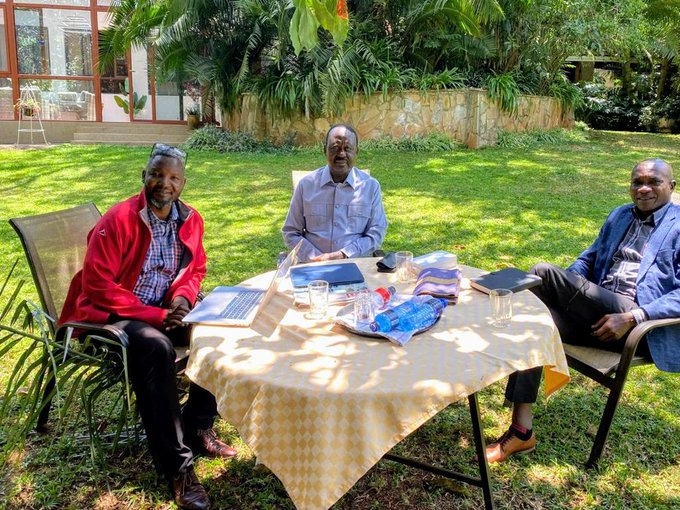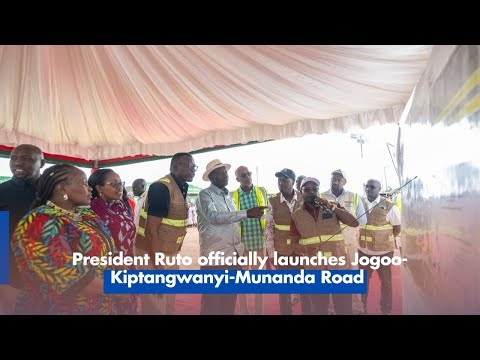There is a much talk about amending the Constitution. Some people even talk of this being a ‘constitutional moment’. In Kenya, this phrase is being used to legitimate particular initiatives to change the Constitution, usually to benefit certain people or groups who feel power is eluding them.
It was therefore a bit refreshing to read an article by Isaac Kalua Green arguing that constitutional amendment should be considered in connection with certain issues, largely for the benefit of the youth. Briefly here is most of what he was proposing.
REINFORCE THE EACC?
“Is it not possible to constitutionally reinforce agencies like the Ethics and Anti-Corruption Commission that are tasked with fighting graft?”
The independent commissions have been something of a disappointment. We have set up systems – in the Constitution and law – to try to ensure their commissioners are genuinely competent and independent. One weakness has perhaps been the role of the National Assembly in appointments.
MPs are sometime prone to be concerned about their own positions rather than the nation’s needs. And their independence of the Executive (the President and government) is not as strong as it ought to be. But should we really take this role away from the people’s elected representatives – into perhaps some secretive bureaucratic process?
It has been suggested the EACC ought to be able to bring corruption cases to court instead of passing them on to the DPP’s office. In theory, the separate scrutiny of EACC cases by the DPP is a good idea. But it would be possible to give the EACC the prosecution role in corruption cases? The Constitution gives Parliament the power to do this.
STRENGTHEN CHAPTER 6?
“Is it not possible to entrench stringent sanctions against State Officers who violate the Leadership and Integrity Chapter of our Constitution?”
The Constitution does say that anyone removed from office because they violate the major integrity provisions can never hold public office again. But if people resign before they are sacked, this does not apply. It would perhaps be possible to say in the Constitution that if a person does that they cannot hold public office unless there is an inquiry into their past behaviour that exonerates them.
But a disappointing court decision also declined to hold that a person not formally convicted, but under great and well-founded suspicion, cannot be prevented from taking up a public appointment.
WARD LEVEL FUNDING?
Since we have experienced the power of devolution, can we now restructure funding in a way that allocation goes down to the ward level?
Some counties have ward development funds. I believe they are unconstitutional – just like the CDF because they confuse the role of MCAs as guardians of the public purse – not spenders of public money.
The first draft of a new Constitution would have had two levels of government below the districts/counties. This was killed at the National Constitutional Conference (Bomas). But even now the County Governments Act requires counties to have ward administrators and even village units with councils of elders. These should bring some money, and decision making about spending it, to those levels.
SELF-EMPLOYMENT FUND
“Can we heal the challenge of unemployment by establishing a Self-Employment Fund to facilitate youth and women’s economic empowerment endeavours?”
We already have the Women’s Enterprise Fund and the Youth Enterprise Development Fund (under regulations, not the Constitution), not to mention the current President’s Hustler Fund. Why would a constitutional fund be an improvement?
We could not include detail – these things need to have some flexibility to respond to circumstances, and to new knowledge and ideas about what might work. And the Constitution cannot govern. That is the job of the elected government.
PUBLIC DEBT
“Because public debt remains a thorn in our flesh, can we establish a constitutional cap and clear guidelines for borrowing? Can we give the Parliament the power to manage the debt ceiling and threshold for such approvals, including domestic borrowing?”
The Public Finance Management Act already says: “The national government may borrow money in accordance with this Act or any other legislation and shall not exceed a limit set by Parliament.” Recently the relevant committee of Parliament approved a new system: that the criterion should be the percentage of our gross domestic product (supposed to be good international practice) – fixing it at 55 percent.
Perhaps unfortunately, it also, as the Business Times reported, removed a provision that required the Treasury Cabinet Secretary to explain to Parliament if the limit was exceeded.
But can we trust Parliament, full of people who were either elected on the same side as the President or, regardless of how they were elected, are sucking up to him as the crude saying goes? And how far does this law have ‘teeth’, or the National Treasury the ability to comply in the face of a determined president? Even as Parliament acted, debt was at 67 percent of GDP.
AUSTERITY?
“Regarding huge public wage bill, can we entrench austerity measures as a constitutional provision?”
It is certainly regrettable the government should impose austerity by taxation on the people as a whole, while they themselves are using money extravagantly (by travel, for example) and that Parliamentarians should constantly seek to enhance their own incomes – including by allowances.
Constitutional provisions about sustainable development, prudent use of public money and equality seem relevant here. And some of these may figure in the impending case on the Finance Act.
THE TAX BASE
Can we constitutionally expand our tax base?
The Constitution tries to do this to some extent by saying: “The public finance system shall promote an equitable society and in particular — the burden of taxation shall be shared fairly.”
Unfortunately, it seems that using taxation and expenditure to distribute resources more equitably does not sit well with many Kenyans, including legislators. Look at the resentment about the Equalisation Fund, and the demand for one person, one vote, one shilling – in a grossly unequal society.
But there is room under the existing Constitution to challenge inequalities and inequities in the taxation system
RIGHTS AND CLIMATE CHANGE
Can we effect liberal, flexible, and innovative policy on social and economic rights that also deal with the negative effects of climate change?
Clearly we can – and must. The Constitution has very full provisions on social and economic rights that enable Kenya to draw on a wealth of experience and analysis from around the world.
But putting things in a Constitution is not a recipe for flexibility. Nor does it create political will.
CONCLUSION
Much of what is proposed is already in the Constitution. That document is not perfect. For example, it is a pity that Chapter Six seems to weaken its requirements for those seeking elected office by focusing on the need for fair election not ethics (or even competence!) Article 73(2).
But a Constitution is not self-enforcing. It needs especially parliamentarians, the Judiciary – and the people. We all – or we should – keep watch on each other. The Constitution as it is, and other important laws, offer many unused possibilities to set the country on track for a better future.
Some things constitutions cannot usefully do. They restrict government, yes, but must not cripple them. We need policies for today’s problems – not yesterday’s. As the US Supreme Court famously said in 1819: “We must never forget that it is a Constitution we are expounding… a Constitution intended to endure for ages to come, and consequently to be adapted to the various crises of human affairs.”
What we need is for government to develop policies and fulfil them within the framework of the Constitution for justice, equality and its (our) other national values.
Some provisions may require people – perhaps parliamentarians or the Judiciary – to do things that are not within their competence.
Above all we need the people to use their powers under the Constitution – to protest, express themselves, maybe go to court, but also to vote in a way that takes account of competence, integrity, commitment, and not whether this is ‘our’ person (even ‘our thief’!)?












